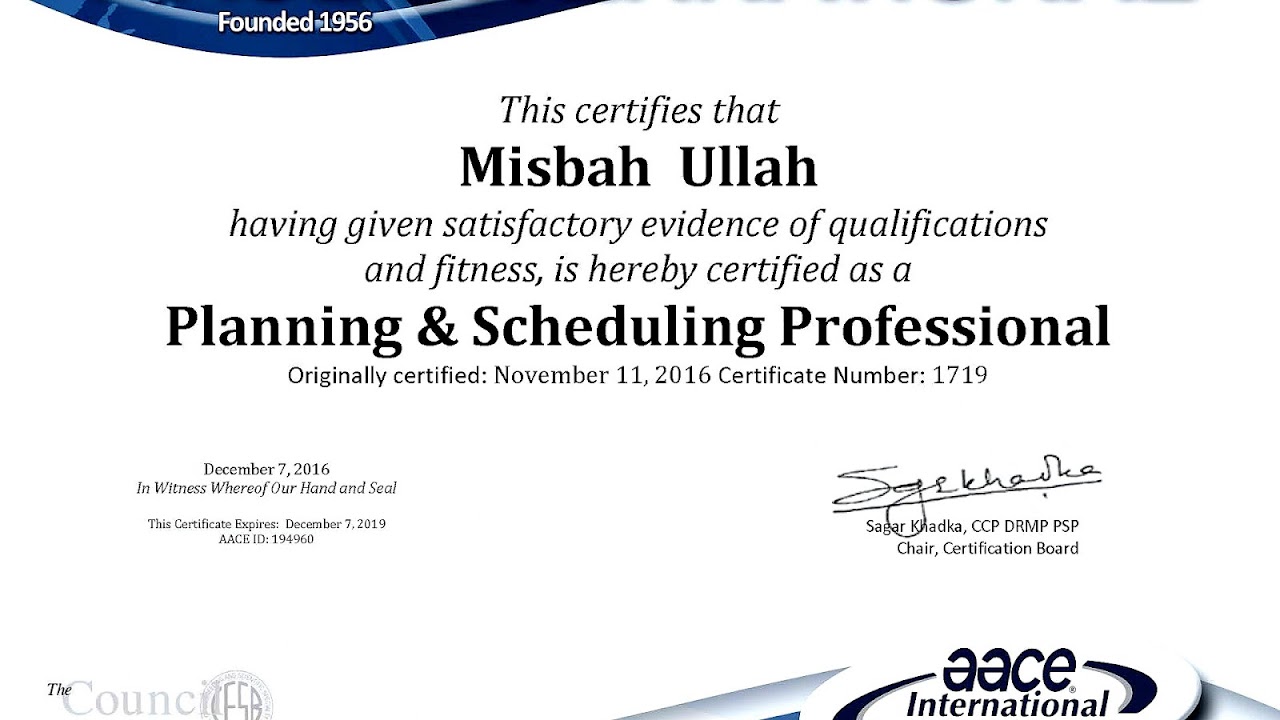
AACE International (formerly the Association for the Advancement of Cost Engineering) was founded in 1956 by 59 cost estimators and cost engineers during the organizational meeting of the American Association of Cost Engineering at the University of New Hampshire in Durham, New Hampshire. AACE International Headquarters is located in Morgantown, West Virginia, USA. AACE is a 501(c)(3) non-profit professional association.
AACE is the publisher of Cost Engineering, a monthly technical journal, Skills and Knowledge of Cost Engineering (currently in its fifth edition), AACE Certification Study Guide (currently in its third edition), 14 different AACE International Professional Practice Guides, and its most comprehensive publication, the Total Cost Management (TCM) Framework.

Maps, Directions, and Place Reviews
Certification programs
AACE currently manages seven certification programs:
- A Certified Cost Professional (CCP) (formerly Certified Cost Consultant (CCC) / Certified Cost Engineer (CCE)) has met specific education and experience requirements, has passed the technical paper submittal, has agreed to adhere to a canon of ethics, and has passed an examination designed to objectively assess and measure cost management and cost engineering knowledge. A CCC/CCE must also satisfy continuing certification requirements or lose the certification.
- A Certified Cost Technician (CCT) (formerly known as ICC - Interim Cost Consultant) has met specific education and experience requirements, has agreed to adhere to a canon of ethics, and has passed an examination designed to objectively assess and measure basic cost management and cost engineering knowledge. The CCT certification is an entry-level certification and is not eligible for renewal.
- A Certified Estimating Professional (CEP) has met specific education and experience requirements, has agreed to adhere to a canon of ethics, and has passed an examination designed to objectively assess and measure estimating and cost management knowledge. Additionally, a CEP must satisfy continuing certification requirements or lose the certification.
- A Certified Forensic Claims Consultant (CFCC) has met specific education and experience requirements, has submitted an expert evidence report requirement, has agreed to adhere to a canon of ethics, has obtained at least one of the pre-approved additional certification requirements, and has passed an examination designed to objectively assess and measure claims and dispute resolution knowledge. Additionally, a CFCC must satisfy continuing certification requirements or lose the certification.
- An Earned Value Professional (EVP) has met specific education and experience requirements, has agreed to adhere to a canon of ethics, and has passed an examination designed to objectively assess and measure cost management and earned value management knowledge. Additionally, an EVP must satisfy continuing certification requirements or lose the certification.
- A Planning & Scheduling Professional (PSP) has met specific education and experience requirements, has agreed to adhere to a canon of ethics, and has passed an examination designed to objectively assess and measure cost management, planning and scheduling knowledge. Additionally, a PSP must satisfy continuing certification requirements or lose the certification.
AACE's CCC/CCE, CEP, EVP, and PSP certified individuals must document ongoing cost and management professional experience and education every three years to keep their certification current. Since becoming a charter member of the Council of Engineering and Scientific Specialty Boards (CESB) in 1990, AACE's CCC/CCE, CCT, EVP, and PSP certifications are independently accredited by the CESB.
Planning And Scheduling Professional Certification Video
Membership
As of 2012, AACE reported over 8,000 members. To network in local areas, there are over 80 local sections located in 80 countries. There are also 11 Technical Sub-Committees and 17 Special Interest Groups (SIGs). Each SIG is devoted to a specific industry area, such as academic, construction, or manufacturing and serves as an outlet for individuals to develop a common body of knowledge relative to identifying issues and assisting others in finding a resolution to similar problem areas.
Source of the article : Wikipedia


EmoticonEmoticon